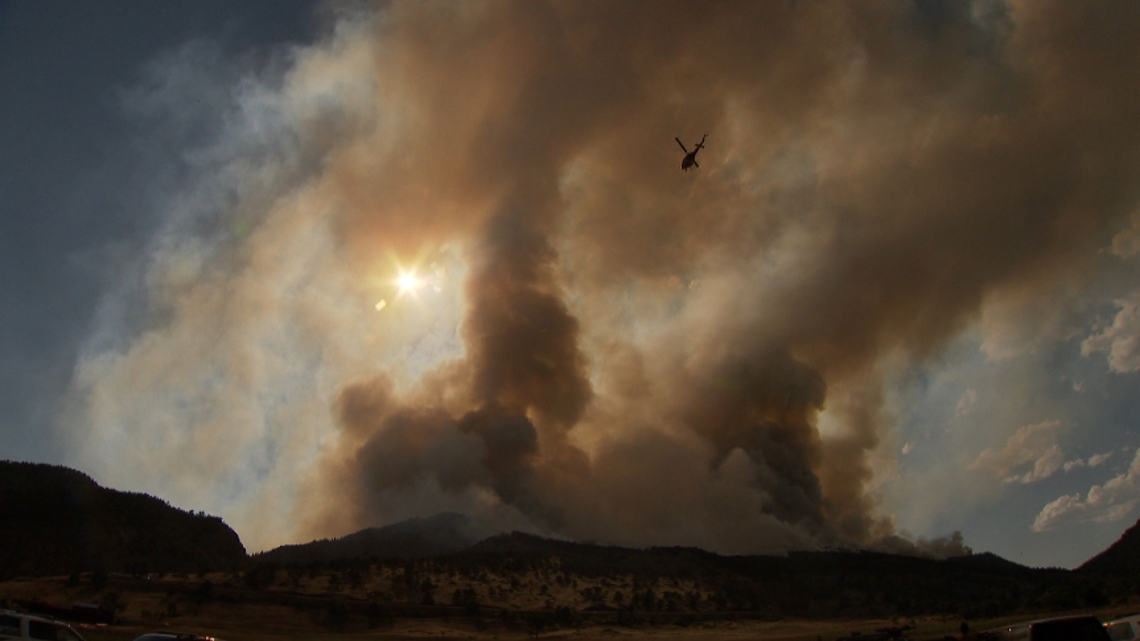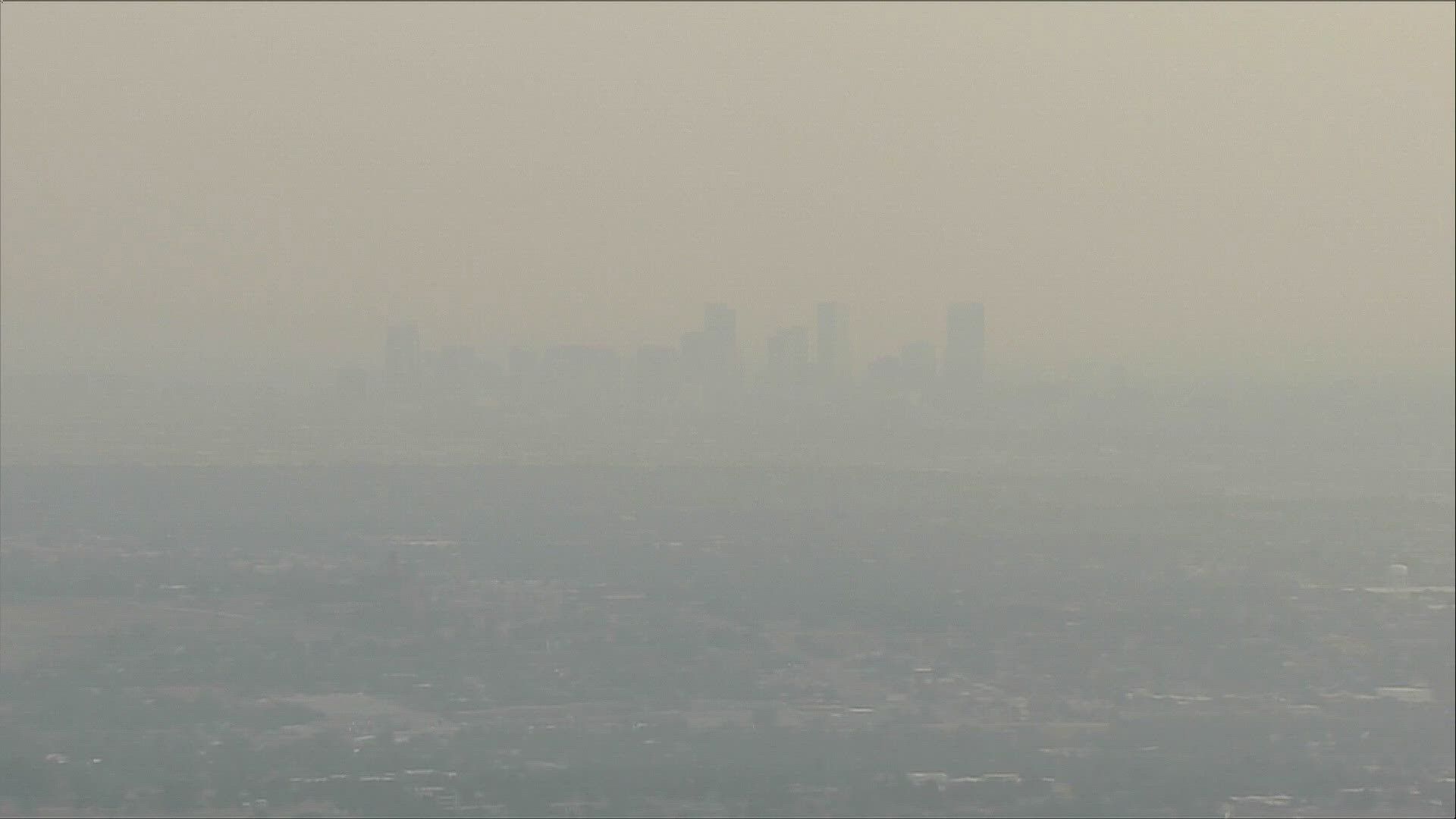COLORADO, USA — We know wildfire smoke isn't good for our lungs, but a new study shows it may be particularly hazardous to brain health, too.
Wildfire smoke increases your risk of dementia more than other forms of air pollution, according to a 10-year study of more than 1.2 million southern Californians. The findings were just released at the Alzheimer's Association's International Conference in Philadelphia.
"Having these small particles enter our bodies and get into our bloodstream is what creates the risk," said Jim Herlihy with the Rocky Mountain Region Alzheimer's Association. "They’re able to get into places that our body's natural filters can’t capture."


Smoky and hazy conditions are all too common along the Front Range, especially right now. Our region is often listed with some of the worst air quality in the country, as wildfire smoke from fires burning here and elsewhere linger above us.
"We are seeing a longer season when we’re exposed to unhealthy conditions," said Herlihy.
The fine particulate matter in that air pollution we breathe is much stronger, even with less exposure, when the source is from wildfire smoke compared to other pollution from things like cars or factories, according to the Alzheimer's Association. Exposure to other forms of pollution has also been shown to raise the risk of a dementia diagnosis, but not as much as wildfire smoke.
The Alzheimer's Association suggests updating your home air filtration system when possible, stay indoors when the air quality is unhealthy, and wear an N-95 mask outside when the air quality index reaches 100.
"I always recommend that people be proactive and get HEPA filters in their house," said Dr. Payal Kohli, 9NEWS Health Expert. "HEPA filters are really good at filtering out the small particles that are present in wildfire smoke."
Dr. Kohli suggests using a free-standing HEPA filter that can be placed in each room of your home. She said free-standing air purifiers can usually handle cleaning the air of a 350 square foot room.
Otherwise, she said if you have a bigger home or higher level of exposure, you can also hire a company to install filters into your central air conditioning system so they're constantly present.
“Now, you could go to the hardware store and see if they have tighter filter that’s compatible with your HVAC system but you want to be careful not to put too tight of a filter into your HVAC because that increases the resistance of the air through the filter," said Dr. Kohli.
She said for protection against wildfire smoke outdoors, you can use N-95 masks with a two-way valve on it, to make it a little easier to breathe.
Dr. Kohli said itchy eyes, nasal congestion, and coughing up phlegm can all be signs your body is becoming irritated from wildfire smoke.

